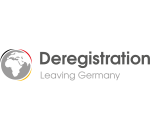Exceptions are possible only in cases where - generally spoken -
- German employees or other privileged citizens from the EU or foreigners who already have residence and work permit cannot be found for this very job
- it is in the interest of the Federal Republic of Germany to allow entry and work to the applicant
These very extensive requirements are difficult to meet. On the side of the applicant it is recommended to give very detailed information regarding the job itself, the employer´s company, the business objectives that can only be achieved with this special applicant and the special qualifications of the applicant that show him being predestined for the job. Inofficially but clearly there is a preference for certain branches that are considerred as being favourable for the economy in Germany like high technology, industry, energy, creative business. Another advantage arises from the situation when the company, the applicant wants to work in, is a or belongs to a foreign investment, because such investments are welcome in general and it is easily explicable that they want to bring at least partially and at least temporarily their own staff.
In a special directive naming the conditions for a work permit there is also a list with certain jobs where a work permit should normally be granted and consequently also a residence permit should be issued. The list comprises jobs like Au-Pair-Girl/Boy, home help, nurses, artists working for foreign film – or TV-productions.
Another possibility is to avoid the work permit procedure, then only the residence permit has to be obtained. The directive regarding work permits enumerates certain work relations which do not require such permission, for instance if the applicant has been conferred procuration, he is part of the managing board or has other outstanding powers. Above that, other short term jobs (less than 3 months occupation in Germany) are enlisted in this directive addressing very special jobs (like e.g. installation of technical devices imported to Germany by the foreign company, entry of foreign athletes, artists etc.).
The Procedure
All application forms and enclosures like work contract, credentials etc. have to be submitted at the German Consulate General. The Consulate examines them and forwards them to the local agency in the German city which is in charge of residence permits in the region where the applicant wants to work. This local agency adds an own lengthy examination of the papers. They will check the economic situation of the company where the applicant wants to work, especially tax debts, register entries etc. Furthermore the records of the applicant will be checked (former stays in Germany, deportations, criminal records, block from entry to Germany in the Schengen register etc.). And finally they will forward the application to the work agency to get their consent, too.
The preparation of the application forms, enclosures and an accompanying letter has to be done diligently, because is has a wide impact on the further procedure. Once a false impression has been generated, it is very difficult to convince the officials of the credibility and respectability of the applicant.
Notwithstanding a perfect preparation the applicant has to count with a procedure taking about 3-6 months. This is dependant on the local agency - Berlin is known to be quite slow, some other regions are a little quicker - and also on the work agency. It is wise to get in touch with the agencies while they are working on the file, because misunderstandings or problems can be solved immediately, documentation can be completed, if somemthing is missing or needs a backup. Due to our experience with the authorities we are able to immediately find out who is working on the case, how far the procedure has come and how to push the procedure as far as possible.
The procedure ends with the decision to issue the entry visa for the purpose to get the residence and work permit after arrival in Germany or with the denial of the application. In the latter case it is possible to enter into a so called "remonstration procedure" within 2 weeks after receipt of the negative decision. This remonstration procedure serves as procedure to review the case once again, also enabling the applicant to provide further documentation, if necessary. This procedure again can take from 2 weeks up to 6 months. If the Consulate General nevertheless sticks to the negative decision, the applicant has the option to appeal against the decision at the Berlin Administrative Court within 1 month after receipt of the formal decision.
-------------------------------------
This article has been submitted by our legal partner Arzinger & Partners. They spezialize on all questions regarding naturalization, residence permits and and refugee status. For further information, check out their website: http://www.arzinger.com/


